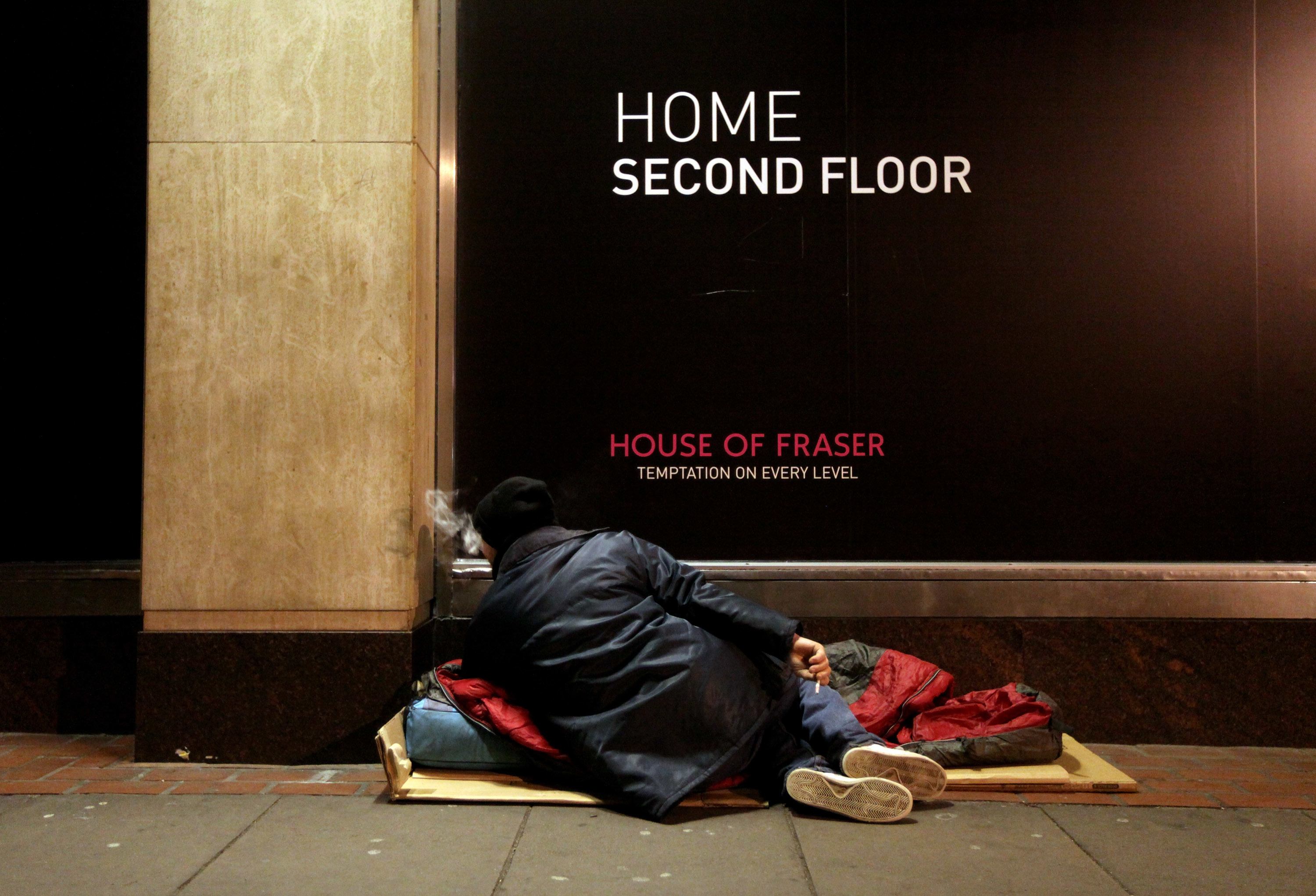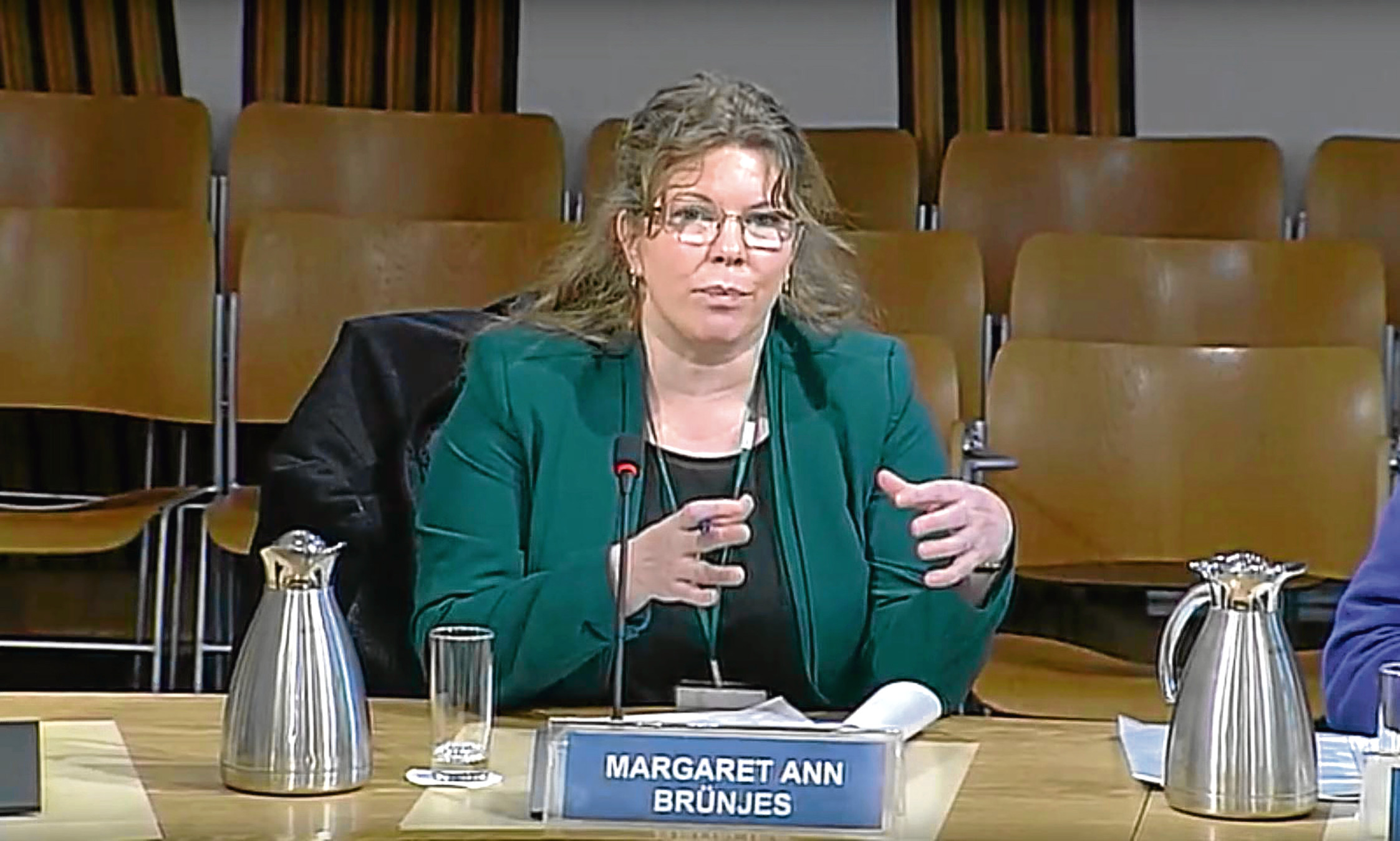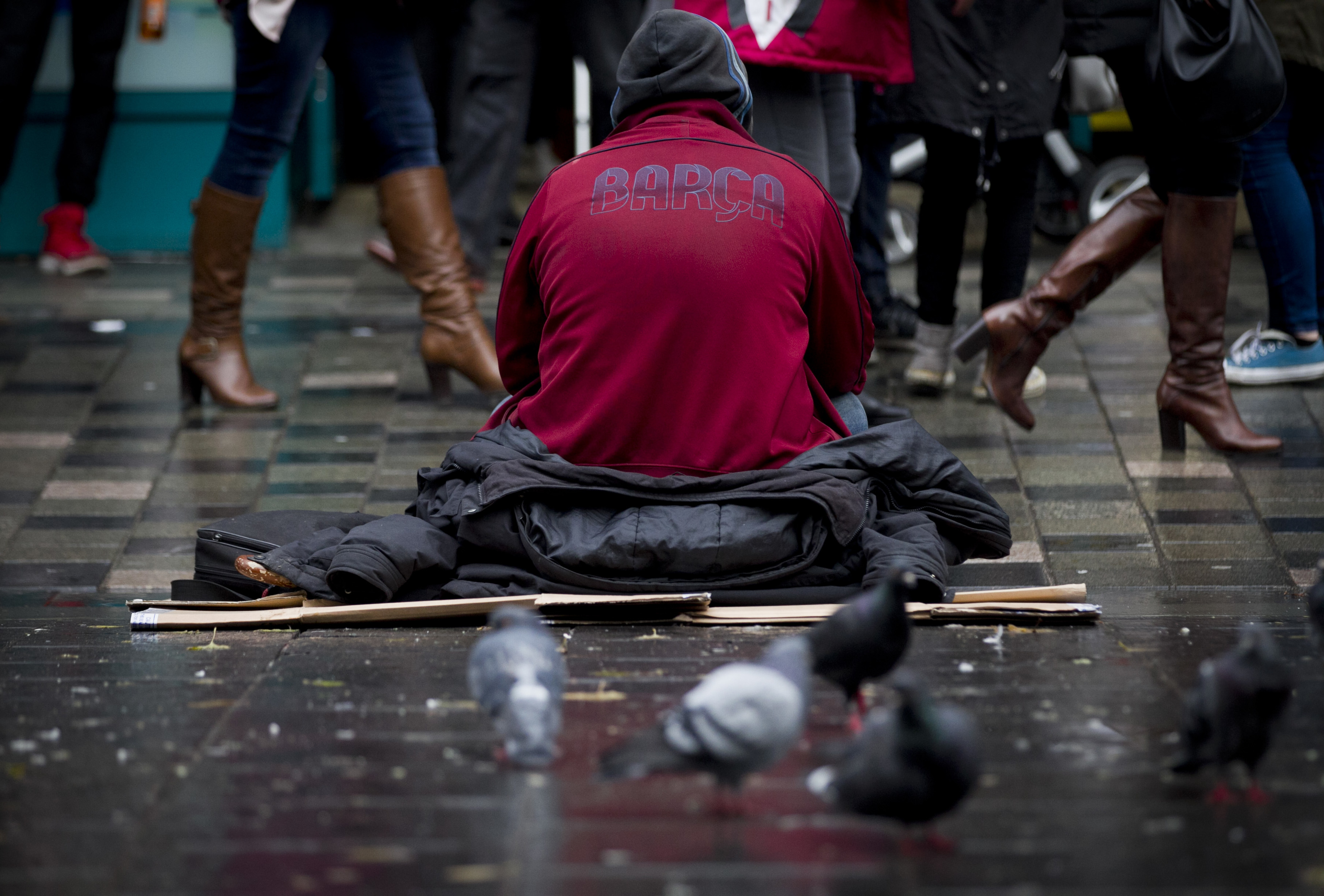
THE number of people forced to sleep rough in Scotland’s towns and cities has soared as experts blame sweeping welfare changes.
More than 5000 men and women will spend this winter on the streets as frontline charities warn of rising numbers, particularly in the big cities, as winter looms.
The crisis on Scotland’s streets has been laid bare in reports sent by 65 charities, health groups and councils to Holyrood MSPs investigating homelessness.
One warned the number of rough sleepers in Glasgow has risen 50% in four years while an Edinburgh hostel says demand has doubled since 2012.
The number of homeless people is also increasing outside the cities according to agencies in North Lanarkshire, Dumfries and Galloway and North Ayrshire.
Graeme Brown, director of Shelter Scotland, said: “We are concerned that as winter nears, there could be more people rough sleeping on our streets fighting for their lives.
“It appears more are slipping through that safety net as cuts to vital local services bite.
“We want to see a permanent home for everyone who needs one, a strengthening of the housing safety net that catches people when they do lose their home, to ensure that vital local homelessness services are properly funded.”
The agencies say changes to the welfare system – which have sent rates of benefit sanctions and housing evictions soaring – are forcing people onto the streets.
Charity Crisis told MSPs there is “an increase in numbers of people sleeping rough, particularly in the major cities in Scotland” while Homeless Action Scotland warned of the “obvious rise in visible rough sleeping” and said several groups are creating “communities” of street-based homeless people.
In Edinburgh, the charity said there has been an increase in groups of homeless EU nationals – particularly Eastern Europeans.
Demand for Bethany Christian Trust’s Care Shelter in Edinburgh has risen dramatically in recent years with an average of 47 people per night staying during 2016/17 compared to 28 per night in 2011/12.
The Glasgow Homelessness Network, an alliance of Third Sector groups, said rough sleeping had doubled in the past four years.
Director Margaret-Ann Brunjes said: “Rough sleeping is the most extreme form of homelessness and the devastating impact it has on people’s lives is well known.
“The prevailing view that ‘something’, however unsuitable, is better than ‘nothing’ is regularly challenged by people preferring to opt out of the system of accommodation, not because they want to sleep rough but because they believe it to be the best option available to them.”
In Glasgow, a spokesperson for the Legal Services Agency, a charity and law centre, said: “The number of rough sleepers has soared.
“They are younger and there appear to be many more young women than was previously the case. This group appear to be very vulnerable.”
In his submission, Mike Dailly, of the Govan Law Centre in Glasgow and a member of the Scottish Government’s Rough Sleeping Action Group, claimed overstretched councils are trying to mask the scale of the problem.
He said: “There is a clear legal duty to prevent homelessness and provide accommodation which many councils in Scotland often ignore in practice.
“It is often the case that no homeless application is taken when someone presents to the casework team.
“Instead ‘advice and assistance’ is offered by the council.
“A local authority, by not taking a homeless application, are able to keep their homelessness statistics down – this further conceals the harsh reality and volume of homelessness, rough sleeping and inappropriate housing.”
In Aberdeen, the number of people presenting themselves as homeless to the local council jumped by 7% to 1375 last year, while in Dumfries and Galloway applications for help went up 23%.
An even more telling statistic is the number of people rough sleeping the night before they approached local councils for help.
Across Scotland this jumped by 10% to 1500 in the past year and some of the biggest increases were away from the main cities.
In East Ayrshire and North Ayrshire there were increases of 105% and 250% respectively.
North Lanarkshire Council said the number of rough sleepers in its area went up from 73 in 2014/15 to 120 in 2015/16.
In Dundee, more than 100 present as homeless each month.
Many frontline agencies blame a cap on welfare payments and cuts to child tax credits introduced by successive UK Governments.
Charities claim the combination of six welfare payments into one, known as Universal Credit, is pushing more people into homelessness because there is a built-in six-week wait for the first payment.
It is being piloted in areas including Inverness but last week opposition parties called for a pause on the biggest welfare change since the 1940s before it is rolled out to the entire country.
Niven Rennie, chief executive of Seascape, an Ayr-based homelessness charity, said it was important to remember rough sleeping is just one aspect of homelessness.
He said: “The vast majority of the people we help are what I would call the hidden homeless.
“And that is people who are moving between friends and family, a night here and a night there, in what they call sofa surfing.
“This is people, often families, in dire straits as they have nowhere to go and the wait for social housing is so long.
“The welfare changes affect everyone we help; some have been left in a really bad way and that is before we get Universal Credit rolled out here.”
A Scottish Government spokeswoman said: “Our new Homelessness and Rough Sleeping Action Group will look directly at how we transform the use of temporary accommodation and end rough sleeping.
“We are backing our ambition with a £50 million Ending Homelessness Together Fund to drive change and improvement.”

Enjoy the convenience of having The Sunday Post delivered as a digital ePaper straight to your smartphone, tablet or computer.
Subscribe for only £5.49 a month and enjoy all the benefits of the printed paper as a digital replica.
Subscribe
